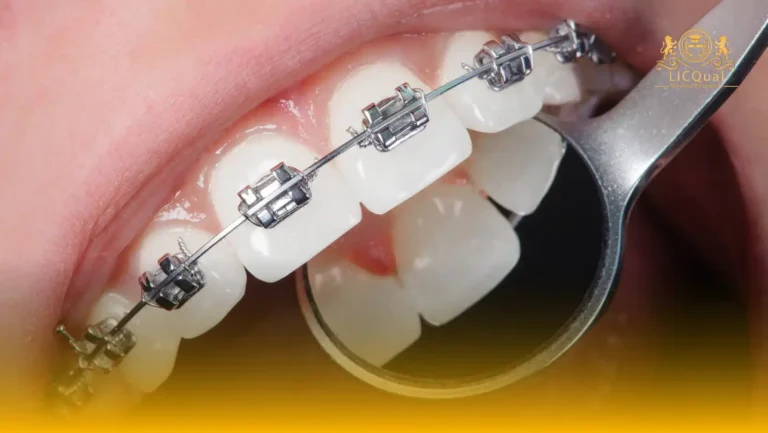The LICQual Level 3 Diploma in Nutritional Epidemiology and Research (Dip Nutritional Epidemiology and Research) is a specialised qualification designed for professionals seeking to advance their knowledge and skills in the study of nutrition patterns, population health, and evidence-based research. This diploma equips learners with the expertise to analyse nutritional data, interpret research findings, and apply epidemiological methods to improve public health outcomes and inform nutrition-related decision-making.
Ideal for nutritionists, dietitians, health researchers, and public health professionals, this programme enhances career prospects while contributing to learners’ Continuing Professional Development (CPD). Learners will gain the confidence to design, conduct, and evaluate nutritional studies, critically appraise scientific literature, and apply research findings to support evidence-based practice in a variety of professional contexts.
Centres delivering the LICQual Level 3 Diploma in Nutritional Epidemiology and Research are required to uphold the highest standards of training. This includes employing competent and qualified staff, providing access to up-to-date research materials and resources, and creating a supportive learning environment that ensures both theoretical understanding and practical application of research techniques.
This qualification is perfect for motivated professionals who wish to deepen their understanding of nutritional epidemiology, develop robust research skills, and make a meaningful impact on population health. By completing this diploma, learners acquire a recognised Level 3 qualification that strengthens professional credibility, enhances research capabilities, and prepares them to contribute effectively to evidence-based nutrition practice.
Course Overview
Qualification Title
LICQual Level 3 Diploma in Nutritional Epidemiology and Research (Dip Nutritional Epidemiology and Research)
Total Units
6
Total Credits
60
GLH
240
Qualification #
LICQ2201051
Qualification Specification
To enroll in the LICQual Level 3 Diploma in Nutritional Education and Counseling (Dip Nutritional Education), applicants must meet the following criteria:
|
Qualification# |
Unit Title |
Credits |
GLH |
|---|---|---|---|
|
LICQ2201051-1 |
Introduction to Nutritional Epidemiology |
10 |
40 |
|
LICQ2201051-2 |
Research Methods in Nutrition |
10 |
40 |
|
LICQ2201051-3 |
Biostatistics and Data Analysis |
10 |
40 |
|
LICQ2201051-4 |
Dietary Assessment Techniques |
10 |
40 |
|
LICQ2201051-5 |
Evidence-Based Interventions and Care Planning |
10 |
40 |
|
LICQ2201051-6 |
Professional Practice and Ethical Considerations |
10 |
40 |
By the end of this course, learners will be able to:
Unit 1: Introduction to Nutritional Epidemiology
By the end of this unit, the learner will be able to
- Explain the principles and importance of nutritional epidemiology
- Describe common study designs used in population nutrition research
- Analyse the role of epidemiology in understanding dietary patterns and health outcomes
- Evaluate the application of epidemiological methods to nutrition-related public health issues
Unit 2: Research Methods in Nutrition
By the end of this unit, the learner will be able to
- Explain quantitative and qualitative research methods relevant to nutrition
- Apply appropriate data collection techniques for nutrition studies
- Analyse research methodologies to ensure validity and reliability
- Evaluate research design choices in the context of nutritional investigations
Unit 3: Biostatistics and Data Analysis
By the end of this unit, the learner will be able to
- Apply statistical tools to analyse nutritional data effectively
- Interpret results from statistical tests in nutrition research
- Evaluate data to draw evidence-based conclusions
- Use software and analytical techniques to support research findings
Unit 4: Dietary Assessment Techniques
By the end of this unit, the learner will be able to
- Explain methods for assessing dietary intake in individuals and populations
- Analyse nutritional status using standard assessment tools
- Evaluate strengths and limitations of different dietary assessment techniques
- Apply dietary assessment methods to inform nutrition research and practice
Unit 5: Critical Appraisal of Nutritional Research
By the end of this unit, the learner will be able to
- Critically evaluate scientific literature and research papers
- Assess the quality, reliability, and relevance of nutritional research
- Interpret research findings for practical application in public health and nutrition
- Apply evidence-based principles to support decision-making in nutrition practice
Unit 6: Professional Practice in Nutritional Research
By the end of this unit, the learner will be able to
- Demonstrate professional and ethical conduct in conducting nutritional research
- Ensure compliance with reporting standards and regulatory guidelines
- Communicate research findings effectively to stakeholders
- Apply research outcomes to inform policy, practice, and public health initiatives
The LICQual Level 3 Diploma in Nutritional Epidemiology and Research is designed for healthcare professionals, researchers, and educators who want to specialize in the study of nutrition and its impact on population health. This internationally accredited program is ideal for those seeking to strengthen their expertise in nutrition research, epidemiology, and evidence‑based healthcare. Whether you are a doctor, nurse, dietitian, public health specialist, or academic researcher, this diploma provides the skills and recognition needed to advance your career and contribute to global health initiatives.
1. Doctors and Physicians
- Gain advanced knowledge in nutritional epidemiology and public health research
- Learn to interpret nutrition data for clinical and population health outcomes
- Strengthen career opportunities with an internationally accredited diploma
- Apply evidence‑based nutrition strategies in patient care and prevention
- Contribute to global healthcare research and policy development
2. Nurses and Clinical Practitioners
- Develop skills in applying nutrition research to patient care
- Understand the role of nutrition in disease prevention and recovery
- Enhance professional credibility with a recognized qualification
- Learn flexible online modules tailored to busy healthcare schedules
- Improve patient outcomes through evidence‑based nutritional support
3. Dietitians and Nutrition Specialists
- Specialize in nutritional epidemiology beyond general dietetics
- Learn advanced dietary assessment and statistical analysis methods
- Strengthen expertise in designing and evaluating nutrition studies
- Gain international recognition with LICQual accreditation
- Expand career opportunities in hospitals, clinics, and research institutions
4. Public Health Professionals
- Acquire skills to analyze nutrition’s impact on population health
- Learn to design and implement nutrition‑focused public health programs
- Contribute to policy development with evidence‑based research findings
- Strengthen career growth in international public health organizations
- Apply epidemiological methods to improve community health outcomes
5. Academic Researchers and Educators
- Enhance teaching and research credentials with an accredited diploma
- Incorporate advanced nutrition and epidemiology knowledge into academic programs
- Gain expertise in designing and supervising nutrition research projects
- Stay aligned with global standards in healthcare education and research
- Expand influence in universities and international research networks
6. International Healthcare Professionals
- Obtain a globally recognized qualification in nutritional epidemiology
- Improve career mobility across international healthcare systems
- Access flexible online learning from anywhere in the world
- Gain expertise relevant to diverse patient populations
- Strengthen employability in hospitals, universities, and public health organizations
7. Allied Health Practitioners
- Broaden knowledge in nutrition and epidemiology for multidisciplinary care
- Strengthen skills in applying research findings to clinical practice
- Earn accreditation to boost career progression and recognition
- Apply advanced nutrition strategies in daily healthcare settings
- Contribute to improved patient and population health outcomes
Centres delivering the LICQual Level 3 Diploma in Nutritional Epidemiology and Research must ensure high standards of training and learner success by meeting the following requirements:
- Qualified and Competent Staff: Tutors and assessors must hold relevant qualifications in nutrition, public health, epidemiology, or related research fields and have practical experience in nutrition research
- Adequate Learning Resources: Centres must provide access to up-to-date research journals, textbooks, digital platforms, and analytical tools to support effective teaching and learning
- Safe and Suitable Learning Environment: Classrooms, laboratories, and online learning platforms must meet health, safety, and accessibility standards to provide a conducive learning environment
- Assessment and Monitoring Systems: Centres should implement robust procedures to assess learner progress, provide timely feedback, and accurately record achievements
- Commitment to Continuing Professional Development: Staff must engage in CPD to maintain professional knowledge and deliver current, evidence-based instruction
- Supportive Learning Environment: Centres should offer guidance, mentorship, and academic support to help learners achieve their full potential
- Compliance with LICQual Standards: Centres must adhere to all LICQual policies, procedures, and quality assurance requirements to maintain accreditation
By meeting these requirements, centres ensure learners receive a high-quality, internationally recognised Level 3 qualification in nutritional epidemiology and research, fully preparing them for professional practice, research roles, and career advancement within nutrition and public health sectors.
Assessment and Verification
All units within this qualification are subject to internal assessment by the approved centre and external verification by LICQual. The qualification follows a criterion-referenced assessment approach, ensuring that learners meet all specified learning outcomes.
To achieve a ‘Pass’ in any unit, learners must provide valid, sufficient, and authentic evidence demonstrating their attainment of all learning outcomes and compliance with the prescribed assessment criteria. The Assessor is responsible for evaluating the evidence and determining whether the learner has successfully met the required standards.
Assessors must maintain a clear and comprehensive audit trail, documenting the basis for their assessment decisions to ensure transparency, consistency, and compliance with quality assurance requirements.







